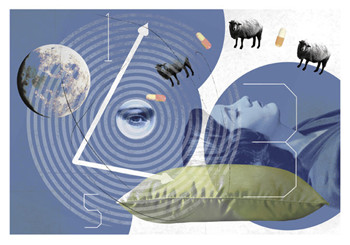
There may be a link between later bedtimes and weight gain, new research suggests.
新研究表明,晚睡与体重增加之间可能存在关联。
Researchers studied 3,342 adolescents starting in 1996, following them through 2009. At three points over the years, all reported their normal bedtimes, as well as information on fast food consumption, exercise and television time. The scientists calculated body mass index at each interview.
从1996年至2009年,3342名青少年接受了研究人员的随访,并分别在这期间的三个时间点上报告了自己平时的就寝时间、看电视时间以及食用快餐和锻炼的情况。在每次访谈时,科学家们均计算了各位参与者的身体质量指数(B.M.I.)。
After controlling for age, sex, race, ethnicity and socioeconomic status, the researchers found that each hour later bedtime during the school or workweek was associated with about a two-point increase in B.M.I.
在对年龄、性别、种族、民族和社会经济地位进行校正后,研究人员发现,在校时或在每周的工作日期间,参与者每晚睡一小时与其B.M.I.约增加2个点相关。
The effect was apparent even among people who got a full eight hours of sleep, and neither TV time nor exercise contributed to the effect. But fast food consumption did.
即使在能睡足8小时的人当中,这种效应依然很明显,且它与看电视时间或锻炼均无关,但与食用快餐有关。
The study, in the October issue of Sleep, raises questions, said the lead author, Lauren D. Asarnow, a graduate student at the University of California, Berkeley.
该研究发表在《睡眠》杂志(Sleep)的十月刊上。其主要作者,加州大学伯克利分校(University of California, Berkeley)的研究生劳伦·D·奥萨诺(Lauren D. Asarnow)表示,该研究提出了一些有待解决的问题。
“First, what is driving this relationship?” she said. “Is it metabolic changes that happen when you stay up late? And second, if we change sleep patterns, can we change eating behavior and the course of weight change?”
“首先,这种关联背后的推动力是什么?是因为当你熬夜时,新陈代谢发生了改变?”她说。“第二,如果改变了睡眠习惯,那我们是否可以改变饮食行为和体重变化的过程?”
The scientists acknowledge that their study had limitations. Their sleep data depended on self-reports, and they did not have complete diet information. Also, they had no data on waist circumference, which, unlike B.M.I., can help distinguish between lean muscle and abdominal fat.
科学家们承认他们的研究存在一定的局限性。他们的睡眠数据依赖于自我报告,也没能获得完整的饮食信息。此外,他们没有参与者的腰围数据。而腰围数据较之B.M.I.有一个优点就是它有助于区分肌肉和腹部脂肪。












